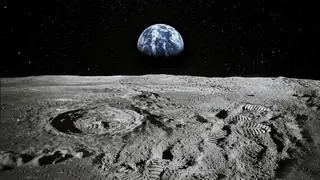Governments and commercial agencies across the world will be putting in space 3,000 satellites between 2017 and 2026 in different categories above 50-kg mass, global space business consultant Euroconsult said in its latest report on future satellites.
The Paris-based firm predicts that the total world space market will increase to $304 billion for the decade, which will be 25 per cent higher than what the space entities spent in the last decade.
Each year, the agencies will spend $30 billion to build and launch an average of 300 satellites. “This is a three-fold increase over the past decade as the satellite market experiences a paradigm shift with the rise of small satellites and mega constellations,” the 20th edition of the report titled ‘Satellites to be built and launched by 2026’ has forecast. The spacecraft are being sent into low- or medium-Earth orbits for communications or Earth observation.
India, which launches about 10 government-funded satellites a year, figures in the bracket of 10 established space-farers. They are the US, Russia, China, Japan and five nations in Europe, who together will command 85 per cent of the government-driven space market of $239 billion.
Commercial constellations The report says there could be a price decrease in this core market of the space industry; the sector will be driven by 23 commercial constellations which totally are expected to launch 1,800 small satellites.
One such constellation is OneWeb — in which Bharti Enterprises took a minority stake in 2015 and has Airbus and Virgin Galactic among many promoters. It was conceived to provide satellite broadband through 1,000 satellites of its own.
Rachel Villain, Principal Adviser at Euroconsult and editor of the report, said, “The space industry is undergoing a massive change in volume as cubesats/nanosats [of around 1 kg to 10 kg] and the large constellations of small satellites have begun to revolutionise satellite design, testing and production, and launch as well, as illustrated by OneWeb.”
The decade’s future spacecraft will include 2,000 to be launched by the commercial / non-government space sector and 1,000 by government agencies. Already, more than 1,300 man-made satellites orbit Earth according to data compiled by the Union of Concerned Scientists earlier this year.
Commercial or private sector-funded spacecraft will be worth about $65 billion.
Another 50 aspiring countries, a few of them first-timers, are estimated to launch 200 satellites. Last decade, they sent up a half of that number.







Comments
Comments have to be in English, and in full sentences. They cannot be abusive or personal. Please abide by our community guidelines for posting your comments.
We have migrated to a new commenting platform. If you are already a registered user of TheHindu Businessline and logged in, you may continue to engage with our articles. If you do not have an account please register and login to post comments. Users can access their older comments by logging into their accounts on Vuukle.